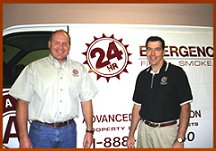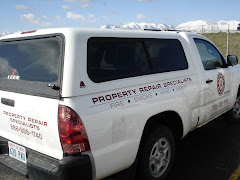Recycling is the act of taking something that isn't useful anymore and making it into something new. Everyone has at some-point has taken something old in their home they were just planning to throw out and transformed it into a new and viable, like a old shoe box into a keepsake box or an old window into a picture frame.
Most people are familiar with large scale recycling that takes used consumer goods and turns them back into raw materials to be made into something else. The most common things we recycle are paper, plastic, glass and aluminum. Don't forget that composing is a form of recycling too. Taking organic waist like food scraps and yard clippings and breaking them down to put back into the earth will save a lot of energy and free up space in our landfills. For information on how to start your own compost check out http://www.epa.gov/waste/conserve/rrr/composting/basic.htm for some easy tips.
large scale recycling is important to the environment and economy. When we can reuse materials to make other goods it cuts back on the amount of garbage going to our landfills, the United States is home to approximately 7,000 landfills. According to the Environmental Protection Agency, the average American produces about 4.4 pounds of garbage a day, 29 pounds a week and 1,600 pounds a year. Only about 20% of the garbage produced in the US is recycled, 70% of the garbage thrown out could have been recycled.
Remember those three easy words Reduce, Reuse and Recycle. Just following these three words can save our precious resources and energy. Reduce what you use, buy reusable grocery totes, and choose products that come in the least amount of packaging. Reuse what you can and buy products made from recycled materials. And last of all recycle, These three word are in a certain order for a reason. Although recycling is important, it is also expensive and we need to do our part in making sure we get everything out of what we use.
Like all things there is a down side to recycling, it is expensive to run recycling programs. Most areas have curb side pick ups of recyclable goods, they then need to be sorted and cleaned, then transformed into new consumer products. Recycling causes its fair share of pollution as well. When recycling paper it needs to be bleached which brings different chemicals into the process.
Even though there are still energy costs and pollution that come with recycling, it is important to be aware of all the good it can create. Recycling teaches us to be aware of the products we use and to be more responsible with how we use them.
Utah has many recycling programs. below are links to the different county programs. Check out what is recyclable in your area and pick up schedules for your neighborhood.
"people feel that it's OK to purchase and use environmentally harmful products like bottled water or plastic diapers because they make up for it by recycling. These views point to the ultimate solution: buy less stuff. Purchasing reusable goods or simply buying fewer things we don't need is the best way to stop the garbage stream at the source." Ed Grabianowski
http://www.cnn.com/2009/TECH/10/06/recycling.refresher/index.html (fun facts)
http://www.thedailygreen.com/green-homes/latest/recycling-symbols-plastics-460321 (what recycle symbols and numbers mean)
http://www.slcgov.com/publicservices/Streets/recyclables.htm
http://www.co.summit.ut.us/publicworks/recycle.html
http://www.co.utah.ut.us/Dept2/Health/Environmental%20Health/Hazardous%20Waste/curbsiderecyling.asp
http://www.daviscountyutah.gov/health/environmental/waste_management/solid_waste.cfm
http://www.co.weber.ut.us/
http://www.sanitation.slco.org/html/recycle.html





No comments:
Post a Comment